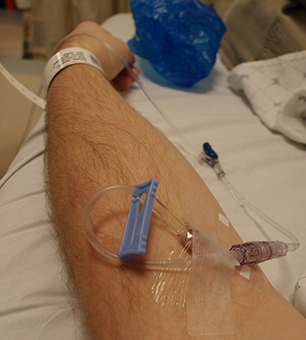The Affordable Care Act’s open enrollment period will close March 31. The Obama administration hopes to encourage the participation of more “young invincibles,” a nickname for the supposedly hardy, under-35 crowd. Early numbers suggest young people comprise a fourth of insurance purchases. The administration is hoping for a big jump to 40 percent.
Frankly, President Barack Obama is missing the opportunity of marketing the ACA to young people in a way they will understand and want.
In a youth summit at the White House in December, Obama told millenials that “everybody who does have health insurance … is acting responsibly and is subsidizing your care.” As a parent — and he is clearly a loving one — the president should know that guilt and blame routinely fail as motivators to get kids to do anything. Yet, he added: “My suspicion is, between your phone bill and your cable bill, the idea you wouldn’t want health security and financial security that comes with health insurance? You’re smarter than that.”
That’s the wrong approach. Kids will sign up for health insurance if they know they will help themselves — not because it’s an act of personal responsibility, depresses insurance prices or raises the overall ACA numbers.
Kids love facts – the president could use these:
Over half of bankruptcies in America are from medical expenses. Young people could destroy their lives, their professional futures (“Have you ever declared bankruptcy” or done so “in the last 10 years” many job applications ask), and their financial reputations for years and maybe forever if they get sick.
In Florida alone, people under age 19 comprise half a million of the state’s 3.8 million uninsured. About 35,000 people under age 24 live in a household with a medical bankruptcy. That figure leaps by tenfold — to over 344,000 — for people under 34.
There is hope. For Romneycare in Massachusetts — on which the ACA is founded – today 94 percent of millennials in Massachusetts are insured.
Over half of uninsured young people have neglected a medical issue, according to a 2011 survey by the Commonwealth Fund. Among uninsured young people with medical bills, 51 percent struggled to pay them and 26 percent dealt with a collection agency, one out of every four.
The other point not clearly elucidated to kids by the Obama administration is that lots of kids do get sick:
- In 2010, there were 465,000 new cases of diabetes among ages 20-44.
- Cancer is the fourth-leading killer of 15- to 39-year-olds, behind accidents, suicides, and homicides. The rates of some cancers, including colorectal, thyroid and testicular, are rising in people ages 20 to 39.
- Atherosclerosis, the plaque buildup in the arteries that can eventually lead to heart attack and stroke, begins in early high school, according to Harvard Health Publications.
- Young people run a higher risk of a car accident requiring health care. In 2009, 8,610,000 people from ages 25 to 34 died in a car accident, but only one-third as many 65 to 74 year-olds — 2,868,000 — fell by the same death.
- Many young people are ill-prepared to tackle problems of mental health and addiction. 21.5 percent of youth 18-25 have abused illicit drugs in the past month according to HHS.
Dr. Tom Frieden, director of the U.S. Centers for Disease Control and Prevention, told us: “Whether you are young or old, healthy or sick, having health insurance is important. Insurance will increase your chances of getting the preventive and primary care you need to be healthy and productive.”
Rep. Lois Frankel, D-West Palm Beach, told us, “No matter what age, we are all one car accident away from huge financial obligations.”
Even though the costs are reasonable, for many young people it’s still a lot. Families USA estimates about 9.3 million people between 18 and 34 will receive a federal subsidy to offset premium costs. The Obama administration promises four in 10 young invincibles will pay less than $100 each month. Early health insurance funds preventive care like immunizations and tests that mitigate future costs.
Any twentysomething or a little older can appreciate the solace of a few more days to tie up loose ends — whether it’s for the college essay you feverishly researched at the witching hour, or the rent due on a cramped apartment. That’s the time you’ve got until the deadline for health insurance. Time to go for it.
5 Days Left: All gifts to Truthout now matched!
From now until the end of the year, all donations to Truthout will be matched dollar for dollar up to $50,000! Thanks to a generous supporter, your one-time gift today will be matched immediately. As well, your monthly donation will be matched for the whole first year, doubling your impact.
We have just 5 days left to raise $50,000 and receive the full match.
This matching gift comes at a critical time. As Trump attempts to silence dissenting voices and oppositional nonprofits, reader support is our best defense against the right-wing agenda.
Help Truthout confront Trump’s fascism in 2026, and have your donation matched now!
